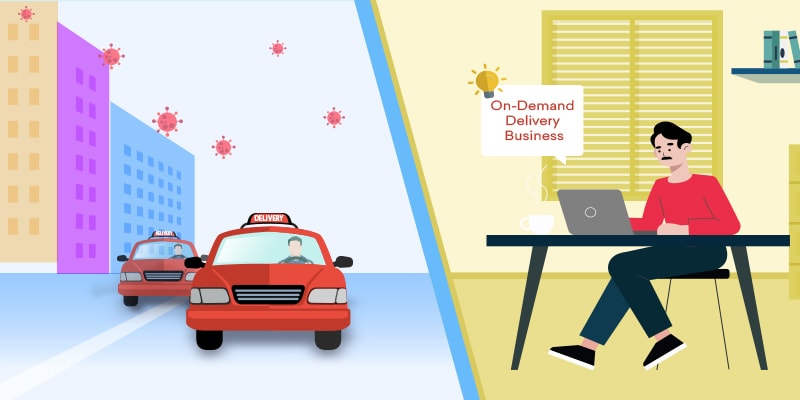The development of technology is pushing boundaries and changing the way the world does business. Today, we are accustomed to doing everything online and right at your fingertips to get instant access. Through Amazon, it is possible to receive a package, one hour after ordering, the leader of the fast-paced food delivery business, depending on where you live. The advanced technology with on-demand food delivery has also enhanced productivity in the logistics, reducing costs and errors.
These advances benefit all sectors of the logistics industry: trucking transport, international transport (sea and air), supply chain management, on-demand transportation business and shipment tracking. Here are five significant technological advances that are changing the future of the logistics industry.
Shipment tracking system
Previously, customers order goods and, receive an estimated delivery date and were then left in the dark until they decided to call left. Today, the Internet and on-demand deliver software advances give customers 24/7 access to shipping and tracking systems. This not only enhances the user experience but also saves time and money for the company.
On-Demand delivers tracking app enable the customers to monitor and manage their shipments. It has customer accounts with shipment accounts and messages, customization reports and customer-specific information that is assigned to them. While technology allows them to do everything from the comfort of their beds, they can’t complain.
Increased use of Internet Of Things
Did you think years ago that you could turn on a ceiling fan from your smartphone? Today, many devices are built with built-in Wi-Fi capabilities and sensors ranging from cell phones and ceiling fans to cars. Wi-Fi’s ease and access and the Internet-connect everyone to everything, that’s why it’s called the Internet of Things.
The on-demand delivery companies can experience many benefits by using IoT including reduced risk and reduced operating costs. The sensors are built into cabs, cargo ships, trains, etc. and are connected to an alarm system or dispatcher that performs monitoring and tracking. These sensors transmit and transmit information to the crew, which then gains an understanding of the hidden dangers and knowledge.
Although IoT is not an entirely new technology, it continues to have an impact on the future of logistics, which can lead to more accurate visibility of transport and delivery of goods. RFID technology, which has been in use for a few years, is a popular labour-saving system that allows businesses to track their inventory.
The logistic companies can add a tag or a sensor which is designed to send radio waves. The company can receive the data sent by the sensors placed in the shipment. RFID tactics have similar barcodes, but the improved speed of data delivery and RFID data processing makes business more attractive and a way to manage technology.
Autonomous trucks and drones
A world where a computer takes you from point A to point B or you get a package of a flying uncrewed aerial vehicle that sounds like something from a movie, but that’s all here.
We have only seen autonomous cars in Sci-Fi movies. Now, autonomous cars are a reality, with trucks not behind.
Embark and Uber have already made the long jump using autonomous vehicles, with Tesla releasing one truck this year. Although it was utterly driverless, with a driver in the passenger seat for computer driving, it is a big step forward in this advanced technology. It has the potential to increase efficiency in the delivery process.
Amazon has announced the future of packages delivered adequately by drones, called Amazon Prime Air. Drone delivery is still a few years away due to regulatory measures and related costs. Still, the idea of not sitting around four hours waiting for a package is very appealing.
Advanced GPS accuracy
Gone are the days when you printed directions from a computer before you left home. Now almost everyone uses GPS, whether it is on their vehicles or in their cell phones. The accuracy of these devices is significantly increased, which not only helps frustrated, lost drivers but improves the supply chain. Advanced GPS accuracy allows for tracking truck locations and enhancing productivity and satisfied customers through improved access to improved traffic data.
Best use of Social media channels
Who wouldn’t check out any social media platform daily? The power of social media is increasing the overall logistics industry and operations. These platforms are becoming an easy and effective way for companies to communicate with customers, providing instant information, industry news and customer feedback quickly. According to Hootsuite, 59% of companies who have a social media account agree that social media has made it easier for customer service to address questions and concerns. On-demand delivering platform uses multiple channels to get news and updates from our customers: LinkedIn, Facebook and Twitter.
Final thoughts
It is essential to keep up with the latest technology to stay competitive and increase efficiency. The logistics industry is benefiting greatly from the latest technology and will continue to grow with on-demand delivery management software. Technological achievements will push the boundary for years to come.












